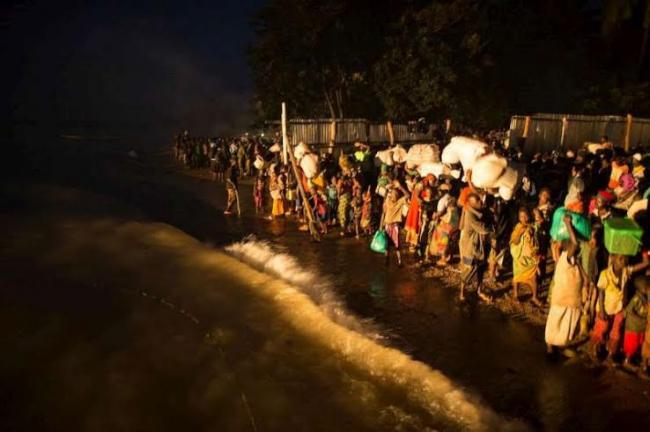
Amid election-related tensions, thousands flee Burundi for neighbouring countries - UN
Briefing the press earlier this morning at UN headquarters in Geneva, UNHCR spokesperson Melissa Fleming explained that the Burundian border would now be closed for 48 hours as per usual practice during elections, forcing refugees to use informal border crossing through the forest instead.
So far, nearly 144,000 Burundians have registered as refugees in neighbouring countries since the country’s political turmoil started in early April. However, many more are believed to have fled the country, but not registered. Latest official figures show 66,000 in Tanzania, 56,000 in Rwanda, 9,038 in Uganda, 11,500 in Democratic Republic of the Congo, and even 400 in faraway Zambia.
In anticipation of more arrivals, relocation efforts have been sped up over the last days. In May, UNHCR and 17 partners launched the Regional Refugee Response Plan for $207 million to protect and assist up to 200,000 Burundian refugees. Despite the deteriorating situation in Burundi, the plan has realised only 13 per cent of its target, leaving crucial services, such as water, health and sanitation, seriously underfunded.
Among the refugees interviewed by UNHCR, noted Fleming, many said that roads were being blocked and people suspected of heading to the border were being forced off buses. Some, she added, had been arrested while others have had their belongings confiscated.
In addition, the number of men among the refugees was reportedly growing amid fears of intensifying violence across Burundi during the country’s electoral period.
Following the recent legislative vote, Burundians are expected to return to the polling station on 15 July as they vote in the country’s Presidential election. UN Secretary-General Ban Ki-moon has, nonetheless,encouraged authorities to postpone the election until “a conducive environment for inclusive, peaceful and transparent elections” has been created.
According to UNHCR, civil unrest erupted on 26 April in Bujumbura after the ruling CNDD-FDD party elected President Pierre Nkurunziza on 25 April as its candidate for then-scheduled 26 June presidential election. Nkurunziza has been in office for two terms since 2005, and a broad array of actors warned that an attempt to seek a third term was unconstitutional and contrary to the spirit of the 2000 Arusha Peace and Reconciliation Agreement for Burundi that ended a decade of civil war in the country.
Photo: UNHCR/B. Loyseau
Support Our Journalism
We cannot do without you.. your contribution supports unbiased journalism
IBNS is not driven by any ism- not wokeism, not racism, not skewed secularism, not hyper right-wing or left liberal ideals, nor by any hardline religious beliefs or hyper nationalism. We want to serve you good old objective news, as they are. We do not judge or preach. We let people decide for themselves. We only try to present factual and well-sourced news.







